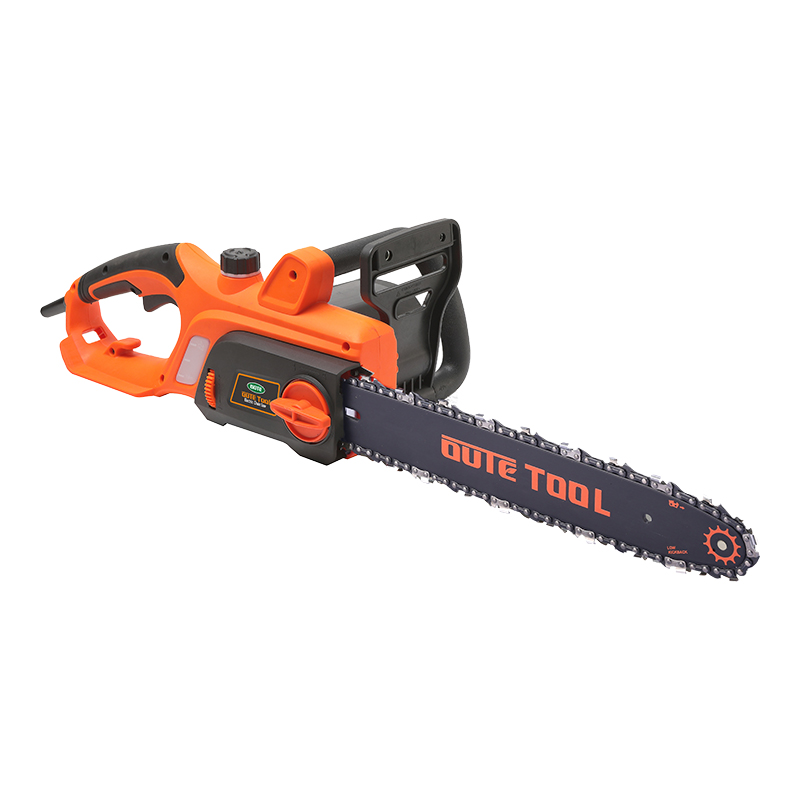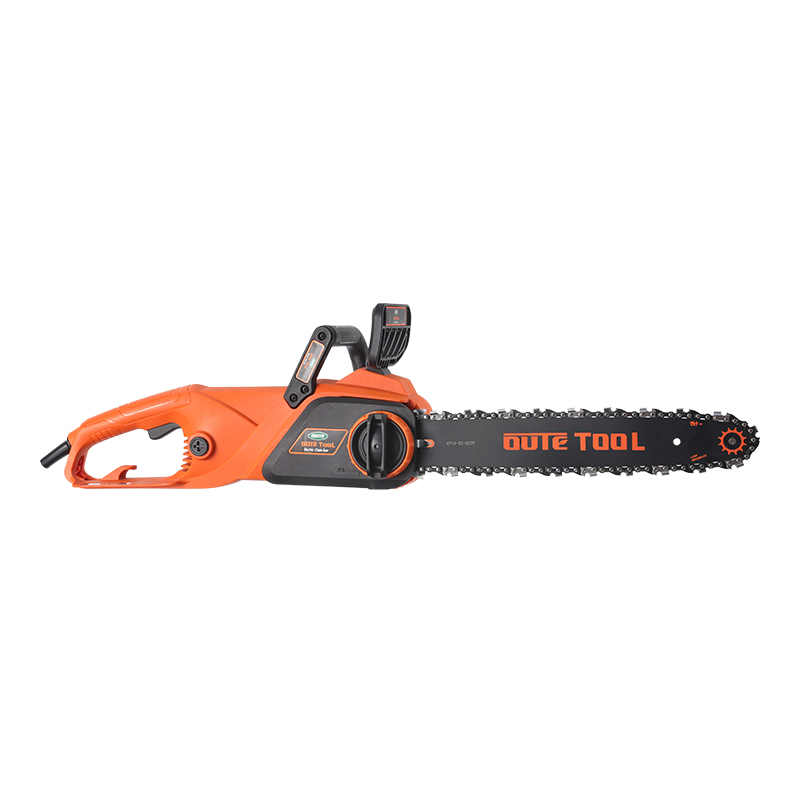When it comes to heavy-duty forestry work, construction, or even land clearing, the choice between an electric and a gas-powered chainsaw can be a critical decision. Both types of chainsaws have their own set of advantages and disadvantages that can significantly impact the efficiency and safety of the work being done. This article will explore the pros and cons of each, providing a comprehensive guide for those in need of a chainsaw for heavy-duty use.
Electric chainsaws are often the go-to choice for those who prioritize safety and environmental considerations. They are quieter than their gas-powered counterparts, reducing noise pollution and the risk of hearing damage for the operator. The absence of exhaust fumes also makes them a cleaner option, which is particularly beneficial for indoor use or in areas with air quality concerns.
One of the significant advantages of electric chainsaws is their ease of use. They require no fuel mixing, which can be a hassle with gas-powered models. Additionally, electric chainsaws typically start with the press of a button, eliminating the need for a pull cord and reducing the risk of back injury from starting the chainsaw.
However, electric chainsaws do have their limitations. They are generally less powerful than gas-powered models, which can be a drawback for heavy-duty tasks. The power cord can also be a hindrance, limiting the area in which the chainsaw can be used and posing a potential safety risk if not managed properly.
Gas-powered chainsaws are the traditional choice for heavy-duty work. They offer greater power and torque, making them ideal for felling large trees or cutting through dense wood. The lack of a power cord allows for greater mobility, which is essential in remote or hard-to-reach areas.
The power and reliability of gas-powered chainsaws make them a favorite among professional loggers and arborists. They can operate in various weather conditions and do not rely on an external power source, which is a significant advantage in rural or off-grid locations.
Despite their benefits, gas-powered chainsaws do have some drawbacks. They are louder, which can consequently hearing damage over time if proper hearing protection is not used. The need for fuel and oil can also be a disadvantage, as it requires more maintenance and can be less environmentally friendly.
When considering the pros and cons of electric vs. gas-powered chainsaws, maintenance and cost are important factors. Electric chainsaws generally require less maintenance, as there are fewer moving parts and no need for fuel or oil. This can result in lower long-term costs for the user.
On the other hand, gas-powered chainsaws require regular maintenance, including oil changes, chain sharpening, and spark plug replacements. This can add to the overall cost of ownership, but for some, the increased power and versatility are worth the extra effort.
Safety is a paramount concern when using any chainsaw, and both electric and gas-powered models have their own safety considerations. Electric chainsaws eliminate the risk of fuel spills and fires, but the power cord can pose a tripping hazard if not managed properly.
Gas-powered chainsaws, while offering more power, also come with the risk of fuel spills and the potential for engine backfire. Proper protective gear, including safety glasses, ear protection, and chainsaw chaps, is essential when using either type of chainsaw.
The choice between an electric and a gas-powered chainsaw for heavy-duty use ultimately depends on the specific needs of the user. Electric chainsaws offer a cleaner, quieter, and easier-to-maintain option, but may lack the power needed for some heavy-duty tasks. Gas-powered chainsaws provide the raw power and mobility required for challenging work but at the cost of increased noise, emissions, and maintenance requirements.
In conclusion, understanding the pros and cons of each type of chainsaw is crucial for making an informed decision. Whether you're a professional forester, a construction worker, or a homeowner with a large property, choosing the right chainsaw can greatly impact the efficiency and safety of your work.







